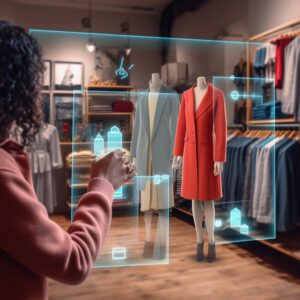By Tom Ryan, Managing Editor, RetailWire
Editor’s Note: This article is an excerpt from one of RetailWire’s recent online discussions. Each business morning on RetailWire.com, retail industry execs get plugged in to the latest news and issues with key insights from a “BrainTrust” panel of retail industry experts.
Blippy.com is a social networking site that encourages people to see and discuss what their friends and others are buying on services such as iTunes, Netflix, eBay, Amazon, and more. They can even set it up to show purchases from credit cards. While some view this as yet another internet-intrusion on personal space, converts say they discover new products and deals while reaching friends.
Speaking to the Los Angeles Times, Justine Ezarik, 25, said she bought an app that tracks sleep patterns after she saw a friend buy it on Blippy.
Advertisement
“A lot of people are skeptical. They feel like they are sharing so much online already,” Ezarik said. “I just feel like this is the next thing to do.”
The site’s founders said millions are already readily sharing more opinions, whereabouts and photos on Facebook and Twitter that many initially felt overstepped boundaries.
| ADVERTISEMENT |
“People are sharing more and more on the internet because they are getting so much benefit from it,” Philip Kaplan, a Co-Founder of Blippy told the Times. “From the user perspective, it’s just a stream of cool stuff that your friends are buying. From the business perspective, it’s the ultimate word-of-mouth marketing: I buy something and tell all my friends about it.”
While privacy critics warn that social sites such as Blippy open up consumers to identity theft and invasive marketing, the founders said safeguards are in place. Moreover, the site provides tools to limit what people see. After credit cards or accounts, such as iTunes or Zappos, are registered on the Web site, transactions are streamlined in a Twitter-like feed. Users can opt to share those purchases with the public, with only their friends, or not at all.
But the Times found some people revealing more than they expected to. A Blippy advisor realized his friends found out he broke up with his girlfriend after downloading the iPhone app for JDate, an online Jewish dating service.
Brad Wayland, a 30-year-old executive with T-shirt company BlueCotton.com and an early Blippy fan, now only shares what he buys at iTunes and Amazon after seeing his family’s monthly health insurance bills show up on Blippy.
“I started thinking about what information I really wanted people to be able to see about me,” Wayland said. “I am not sure I want the world to know that I ordered a No. 2 super-sized and two chocolate chip cookies at McDonald’s.”
The RetailWire BrainTrust panel weighed in on the concept with generally skeptical comments. “I definitely think consumers are willing to share information and opinions about their purchases, but not using Blippy,” said David Dorf, Director of Technology Strategy, Oracle Retail. “As far as I can tell, Blippy does nothing more that list your purchase with no ability to explain, comment, or review. Just because I buy a dress for my daughter does not mean I like dresses nor would I listen to some of the music I buy my son.”
Other panelists agree that the capabilities on Blippy fall short. “If you can’t really comment on the product, what’s the point?” said Doron Levy, President, Captus Business Consulting. “Consumers turn to the Internet for detailed opinions and reviews on products they want to buy. Blippy sounds like a glorified Twitter service with no real information behind the actual use of the product.”
The concept of Blippy could potentially lend itself to the in-store retail environment. “I often think, when hearing about sites such as this, why don’t retailers have a space, right inside the front door, for shoppers to input what they just bought, or what they are looking for, while learning from customers how they answered their own product needs?” said Jerry Glesomino, Principal, FutureBest. “It could give entering customers new options if the desired product is out of stock, or even upgrades that should be considered. I know there are privacy issues and trust of accuracy that have to be guarded but let’s just think about the positive aspects of putting an online tool in the store.”
Ultimately, a large portion of the panel chalks this concept up to a generation gap. “This is certainly a generational thing,” said Susan Rider, President, Rider & Associates, LLC. “Young people today are sharing EVERYTHING and feel something of a social responsibility to do so. A marketing person’s dream come true.”








